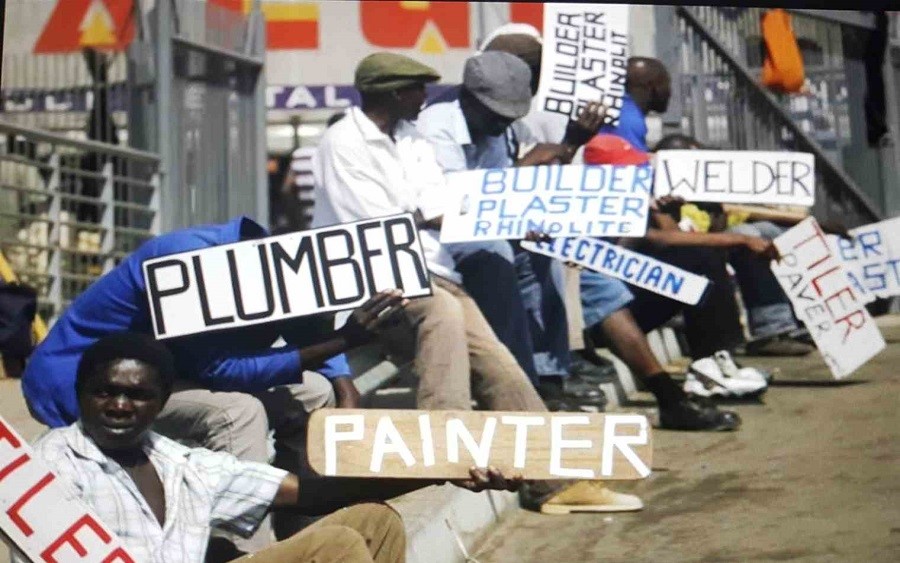[By Oluseun Onigbinde]
Watching Nigeria’s public finances has become an inconvenient chore as the numbers are nothing to cheer about. After several denials, it is comforting to hear public leaders finally accept one fact: Nigeria is facing a revenue crisis. Nigeria planned a revenue of N5.84tn for the 202o budget but was only able to raise N3.42tn, representing 59% performance. For context, the Federal Government revenues were N3.1tn as of 2012, a period with stronger exchange rates but oil prices rode at high levels. If there’s anything scary, it is to see that the FG had revenue of N3.42tn in 2020 and spent around 97% on debt servicing. I have not seen any country’s decent financing come up this way, not even the early Obasanjo days that necessitated foreign debt cancellation.
FG’s non-oil revenue grew through an increase in its share of non-oil taxes, from N704bn in 2012 to N1.58tn in 2019. Non-oil revenues have become the core of FG’s revenue as oil revenues contributed 41% to total revenue in 2020; in 2012, oil revenues accounted for 56% of FG’s total receipts. The times have changed. However, how big is the revenue of the Federal Government of Nigeria? In dollar terms, FG revenues fell from $19.94bn in 2012 to $8.97bn in 2020, a painful effect of devaluation. At 6%, Nigeria has one of the lowest revenue to GDP in the world, which means it has a relatively huge economy but takes too little revenue for public development. There have been several efforts to optimise public revenues with voluntary declarations, tax sanctions and review of tax waivers. The Federal Government has even changed the tax institution’s leadership but this has not changed the matrix in a significant way.
What are the things to understand in Nigeria’s revenue challenges?
There must be a clear understanding that you cannot tax zero output. If the 2019 NBS Poverty Report numbers show us that 40% of Nigerians, which represents over 80m Nigerians, are poor, then we have at least 40m able-bodied Nigerians outside the tax bracket. How unconscionable can it be to tax a person who is trying to get by? The other angle is that most Nigerians living in rural areas are also involved in agriculture, a sector largely untaxed at its production levels. When you add up most Nigerians in semi-urban and urban areas involved in informal trade, it is most obvious to the eye why we might have an outsized population but we have not been able to pick up revenue. It begs the question: don’t we just have human resources and not human capital? A recent SBM Intelligence report counters my argument that 98% of businesses in Nigeria’s informal sector paid their taxes — but to non-state regulated actors. This is the state of things when the social contract does not stand as the thesis for a functional society. Nigeria cannot reap revenues if it chooses not to severe public troughs from gangs and “unions” that have become tools of political expediency.

Nigeria has issues around incentives for raising revenues at all levels. The FG is finding means through the Central Bank’s “ways and means” approach to plug its deficit hole. For example, FG had a revenue of N3.13tn in 2012 and spent a total of N4.13tn, which means its deficit to revenue ratio was 32%; this means for every N100 earned, N33 was borrowed in 2012. In 2020, FG had revenue of N3.42tn but spent N10.07tn, which showed a piece of staggering evidence that for every N100 earned, N193 was borrowed. Lest we forget that naira has been devalued significantly over the period, which means FG earned more from FX components such as oil and custom duties. How does FG that has nearly the same amount of revenue in 2012 and 2020, spend twice as much in 2020? This is because FG has downed all tools of fiscal practices and resorted to excessive borrowing and a CBN support programme, a luxury that it won’t perpetually have.
In my own view, FG has lost the incentive to rapidly seek revenues as it found the continuous loop of using CBN to patch its fiscal balances. For the states, they are quibbling over the removal of subsidy that keeps shortening their revenues and we have seen encouraging stories on IGR growth. However, the fundamental question is that there has been no review of the tax architecture of Nigeria in years. How does a state take only personal income taxes? Why should Lagos not get benefits for hosting the busiest ports? Why can states that attract businesses to their environment get more from Company Income Taxes, which are still largely distributed along with population? Is Nigeria pushing the incentive for states to look inwards to get revenues? How is the FG supporting states on this or are FG funding gaps only to close payroll gaps and not to enable productivity?
We cannot talk about gaps in revenues and not appraise the quality of the collecting institutions. Nigeria’s revenue institutions need a revamp and this includes independent revenue-generating institutions such as CBN, NIMASA, NCC, NPA, and others. Nigeria is yet to apply rigorous reform that can bring cost-efficiency mechanisms into these institutions. Nigeria ranks 159 out of 190 countries on the World Bank’s Ease of Paying Taxes Index and this speaks directly to the capacity of institutions.
Before Nigeria can find a balance for expanding revenue growth, it must rigorously review and create workable ways to capture its informal system that forms a core part of its economy; improve its institutions to ease the process of tax payments and rework the incentives for the federating units across the country. I have put these things forward as the low-hanging fruits but these aren’t going to solve the revenue challenge in a significant way. The flaw in the revenue argument is that we are looking at the fruits rather than grooming the trees. Without Nigeria paying attention to cross-sectoral growth—ICT, small manufacturing, entertainment, real estate, agriculture—and supporting productivity, there is no way it would solve the revenue challenge.
Our leadership needs to understand that to earn returns, it would need to invest capital on assets. Human assets would not yield returns until there’s a concerted effort to invest in them. This is where the human capital question looms again. Without significant investment in education, digitalisation, health, credit expansion and skill development, Nigeria cannot expect yields on these human assets. The size of revenues to run the state should mainly come from taxes and if Nigeria chooses not to build a country, it would run out of options as shown in oil revenues (FG earned N1.4tn from oil revenues but spent N10.07tn) that no longer meet its expenditure. Nigeria needs to actualise a growth agenda (sub-2% growth with weakening GDP per capita can’t excite the Nigerian economy) and a clear roadmap for human capital development. Without these, it will continue to romance the low tax-to-GDP numbers without understanding that it has failed at both the short-term and long-term work to rewrite its destiny.

Oluseun Onigbinde is the Director of BudgIT and the author of The Existential Questions.
